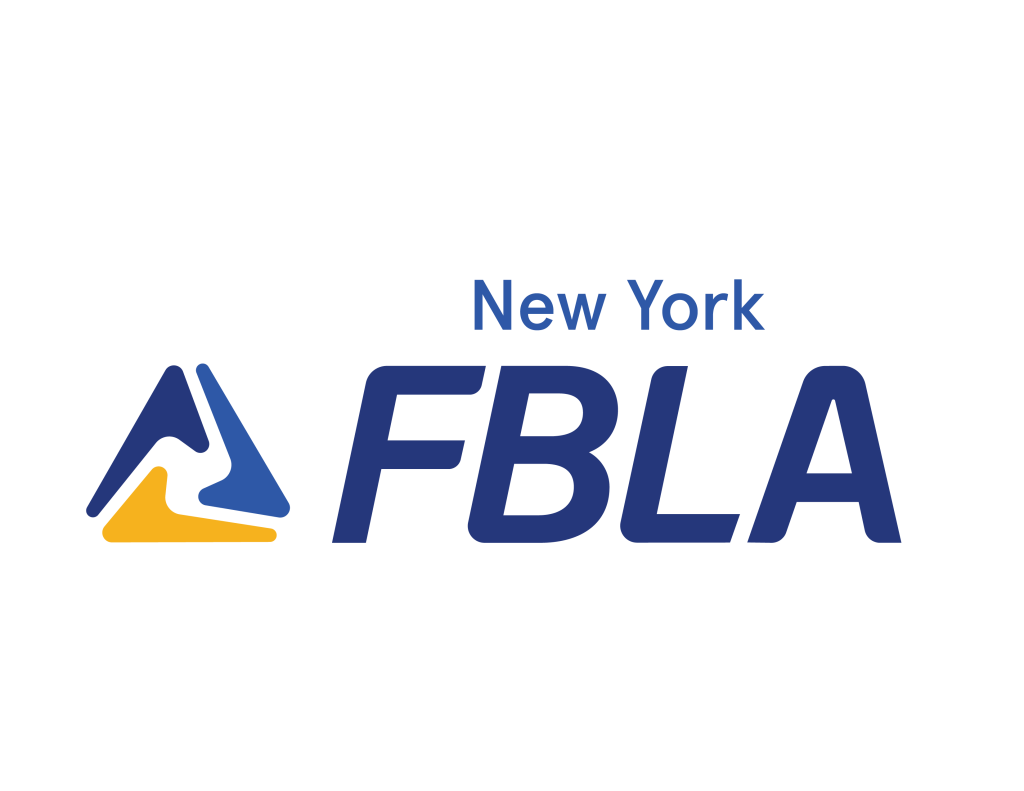FBLA Mission Statement
FBLA inspires and prepares students to become community-minded business leaders in a global society through relevant career preparation and leadership experiences.
FBLA’s programs focus on:
- Leadership Development—members develop essential soft skills by holding chapter officer positions at the local, state, and national levels; by networking with accomplished business professionals; and by participating in business-focused workshops, seminars, and academic competitions.
- Academic Competitions—members demonstrate their business expertise at high-profile regional, state, and national competitive events. The top students are recognized with trophies and cash awards.
- Educational Programs—members create career portfolios, enhance their knowledge with world-recognized skills certifications, and have access to select college scholarships.
- Membership Benefits—members receive exclusive discounts and enhanced benefits for travel, education, and more.
- Community Service—members work with the March of Dimes and the state charity to help end premature births by participating in awareness campaigns and the March for Babies fundraiser.
- Awards & Recognition—members build a portfolio of accomplishments with a wide range of awards programs.
FBLA Creed
I believe:
- education is the right of every person.
- the future depends on mutual understanding and cooperation among business, industry, labor, religious, family, and educational institutions, as well as people around the world. I agree to do my utmost to bring about understanding and cooperation among all of these groups.
- every person should prepare for a useful occupation and carry on that occupation in a manner that brings the greatest good to the greatest number.
- every person should actively work toward improving social, political, community, and family life.
- every person has the right to earn a living at a useful occupation.
- every person should take responsibility for carrying out assigned tasks in a manner that brings credit to self, associates, school, and community.
- I have the responsibility to work efficiently and to think clearly. I promise to use my abilities to make the world a better place for everyone.
FBLA Code of Ethics
I will . . .
- be honest and sincere.
- approach each task with confidence in my ability to perform my work at a high standard.
- willingly accept responsibilities and duties.
- seek to profit from my mistakes and take suggestions and criticisms directed toward the improvement of myself and my work.
- abide by the rules and regulations of my school.
- exercise initiative and responsibility and will cooperate with my employer and fellow workers.
- dress and act in a manner that will bring respect to me and to my school.
- seek to improve my community by contributing my efforts and my resources to worthwhile projects.
FBLA Pledge
I solemnly promise to support the mission of Future Business Leaders of America, abide by its Code of Ethics and Code of Conduct, and develop the qualities necessary to become a community-minded business leader.
FBLA Goals
- Develop competent, aggressive business leadership.
- Strengthen the confidence of students in themselves and their work.
- Create more interest in and understanding of American business enterprise.
- Encourage members in the development of individual projects that contribute to the improvement of home, business, and community.
- Develop character, prepare for useful citizenship, and foster patriotism.
- Encourage and practice efficient money management.
- Encourage scholarship and promote school loyalty.
- Assist students in the establishment of occupational goals.
- Facilitate the transition from school to work.
